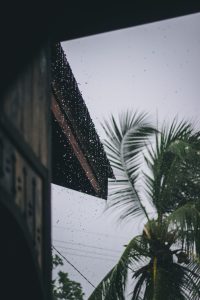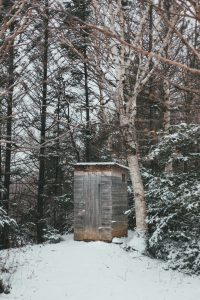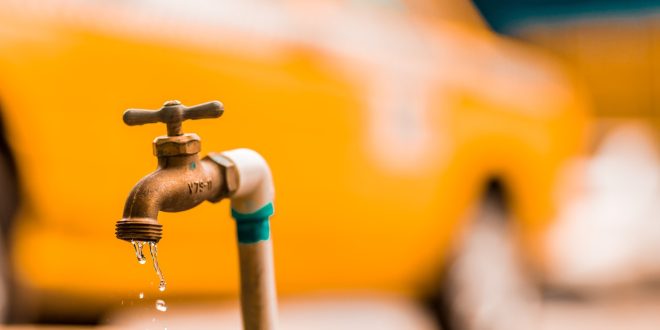Living off-grid is becoming more popular as our world gets more challenging to navigate. This process in its most basic form involves becoming self-sufficient when it comes to utilities. Most of us are familiar with off-grid power options such as solar power and petrol generators, but what about off-grid plumbing? Is it truly possible to secure and operate your water source and handle your wastewater? Depending on your circumstances, yes, it is possible. This post explains more about how off-grid plumbing works.
Harvesting Water
 There are two main ways to harvest water for home use. One is to collect rainwater in barrels or reservoirs. Another is to harvest groundwater by digging a well below the water table. Harvesting rainwater can be a good option in areas that get substantial rainfall and areas that are too high to build a well. Most rainwater collection systems involve collecting runoff from the roof into barrels.
There are two main ways to harvest water for home use. One is to collect rainwater in barrels or reservoirs. Another is to harvest groundwater by digging a well below the water table. Harvesting rainwater can be a good option in areas that get substantial rainfall and areas that are too high to build a well. Most rainwater collection systems involve collecting runoff from the roof into barrels.
Building a well is a good option in areas that may not get as much rain and that are fairly low (the closer to the water table, the less deep the well needs to be). Traditionally, water from wells was collected in buckets, but nowadays it can be pumped directly to the home.
Treating Water
It is worth treating water, whether it comes from the ground or the rain, to make sure that it is clean and free of sediment. This helps prevent contamination that can cause illness, as well as prevent build-ups in pipes.
Rainwater typically needs more treatment than groundwater. Using a clean catchment surface and purification filter, you can purify all rainwater, making it viable for household use (including drinking). Groundwater is typically cleaner and in some areas may not need to be purified, although it is generally safer to filter it anyway.
Removing Waste
 You also need to consider your method of drainage for wastewater. Connecting your plumbing to the main sewer line will require you to continue paying water bills for wastewater. If you want to be completely off-grid, you’ll need to find a way of disposing of your waste. Two commonly known options are a cesspit or a septic tank. Cesspits hold waste that needs to be collected by a waste disposal company regularly. Septic tanks break down waste and can drain it away into a soakaway or stream. However, it will also need to be serviced and emptied if you don’t have this option.
You also need to consider your method of drainage for wastewater. Connecting your plumbing to the main sewer line will require you to continue paying water bills for wastewater. If you want to be completely off-grid, you’ll need to find a way of disposing of your waste. Two commonly known options are a cesspit or a septic tank. Cesspits hold waste that needs to be collected by a waste disposal company regularly. Septic tanks break down waste and can drain it away into a soakaway or stream. However, it will also need to be serviced and emptied if you don’t have this option.
There are some other options for waste management. You could dig a pit latrine (outhouse) if you have the space and right set up on your land. There are some basic rules to building this structure, so do your research thoroughly. The other option is a compost toilet. These can be as simple as using a bucket to go in that you add sawdust to break down waste. A more sophisticated version you can purchase looks like a toilet and can help with decomposition.
Is it worth the investment?
Off-grid plumbing and wasted management can be expensive to set up. However, you can save money in the long run by skipping the municipal water/sewer bills. For remote homes where water bills can be higher, it’s likely to be a better investment. Off-grid plumbing is also worth considering when initially building a house – it’s usually easier to integrate it during this stage.
Consider all the reasons you want to invest your time and money into such an extensive project. If you want to free your family from dependency on traditional systems, this could be a strong way to cut some of your ties.
 Women's Life Link Be Well, Be Happy, Be YOU!
Women's Life Link Be Well, Be Happy, Be YOU!





